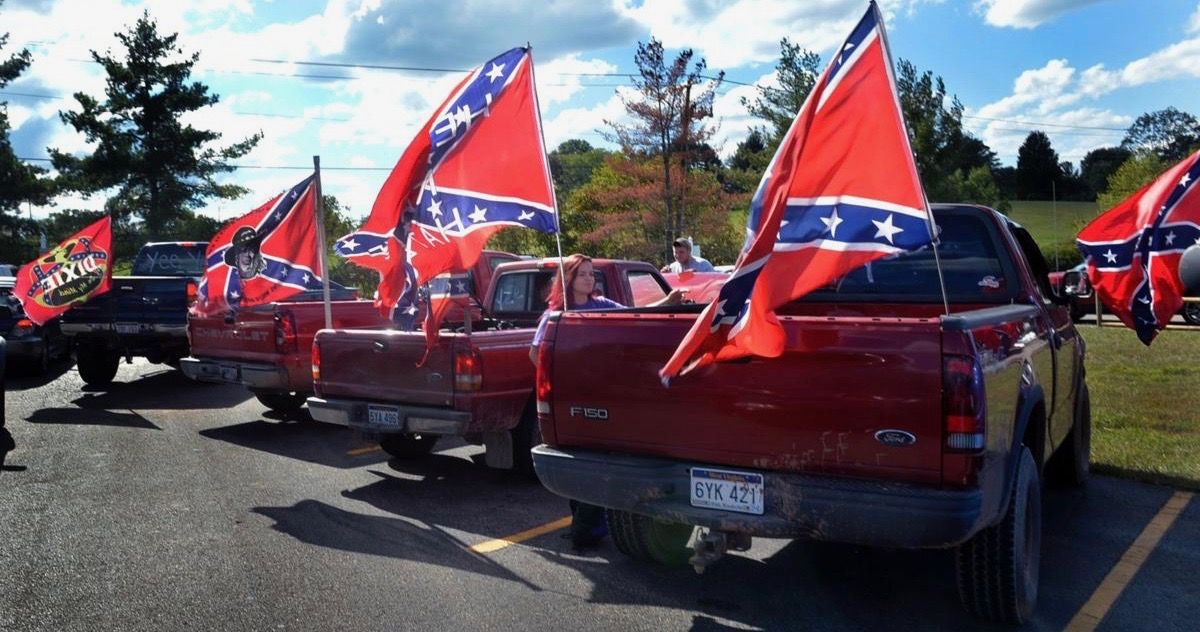In January, the Franklin County School Board in Rocky Mount, Virginia, rejected a proposal to ban clothing with images of the Confederate flag, angering many black residents in this overwhelmingly white community. Penny Edwards Blue, the board’s only black member, had suggested that the school’s dress code be modified to forbid the flag as a form of “discriminatory, obscene or hate speech imagery.”
“For black people, the flag says you’re not welcome. It means lynching, it means you do not have rights,” Blue, 60, says. “It absolutely harms the learning environment and it needs to go.”
Initially, the vote on Blue’s proposal tied, 4 to 4. Later, seven members of the board voted to amend the dress code but not ban images of the Confederate flag. Blue says she was responding to complaints from black students, parents and teachers, who said that white students showed up often wearing clothing with the Confederate flag.
School Superintendent Mark Church says the ban is pointless because he believes most students are not offended by the flag. He claims that as superintendent, he has never seen a fight caused by the flag or received a formal complaint. “A little rebel flag on a jacket?” Church said. “Our students don’t — they’re not outwardly bothered by it, it’s not a significant issue.” Church adds that in southern Virginia, the flag is everywhere.
Other communities, however, have banned the flag. Schools in Montgomery County in southwest Virginia voted to ban Confederate symbols from clothing and cars in 2015; in Maryland, Carroll County schools also banned the flag two years ago.
Even though Church claims students aren’t bothered by the flag, many black teens, aware that they are the minority, are afraid to complain. Malala Nadean Penn, a 2016 graduate of Franklin County High School, says seeing the flag in the hallways at school was upsetting. “I don’t feel that my voice would have been heard,” she says.
Those who oppose prohibiting the flag say a ban would violate the First Amendment, which protects free speech. The Supreme Court seemingly agrees. The court has repeatedly decided that it is unconstitutional to forbid any kind of speech in schools, whether it be a Confederate flag, racist epithets or a swastika, said Catherine J. Ross, a George Washington University law professor and author of “Lessons in Censorship.”
However, Blue and those who support the ban point to a 2013 court ruling — Hardwick v. Heyward, delivered by the U.S. Court of Appeals for the 4th Circuit, which has jurisdiction over Virginia. In that case, the court ruled that officials at a South Carolina high school and middle school had not violated the Constitution by banning the Confederate flag, fearing it may incite racial violence.
In the decision, the judges noted a demonstrated “history of racial strife” at the schools and within the area, said Nora Pelizzari of the National Coalition Against Censorship. “If Penny [Blue] can gather data to show a recent history of racial incidents and of the flag being used in a provocative and disruptive way,” she added, “the School Board could be on solid legal ground with this ban.”
RELATED: Is Disney Plus' Disclaimer About Racist Scenes Enough?
Blue will continue to reach out to teachers, parents and students to get their feedback on how the flag has provoked racist incidents and present these the board. “I plan to push forward on this until the end,” she said.
Source: MSN

